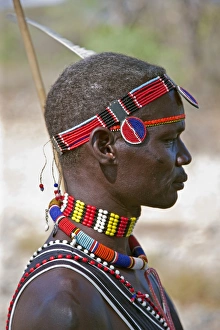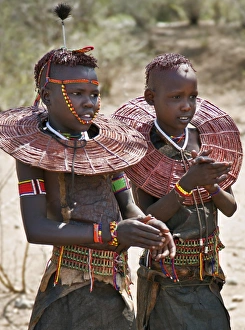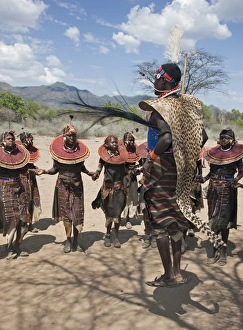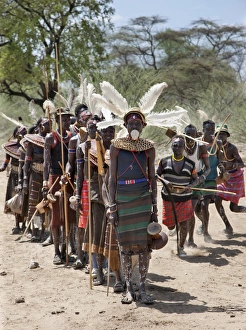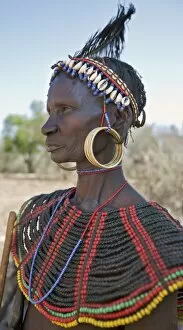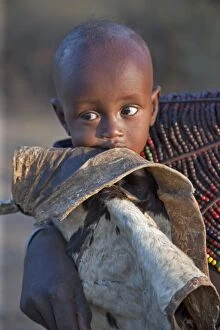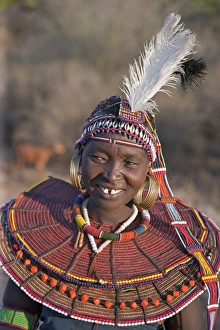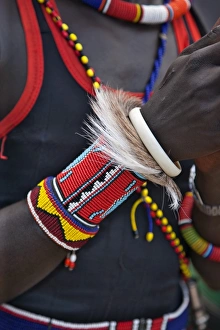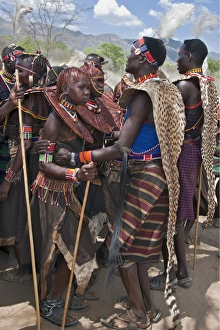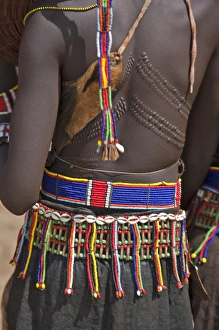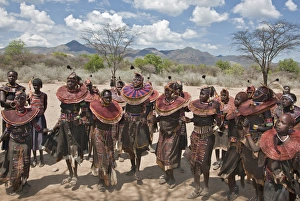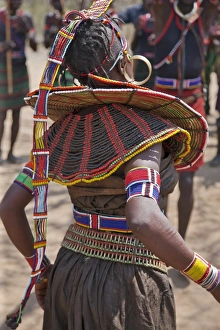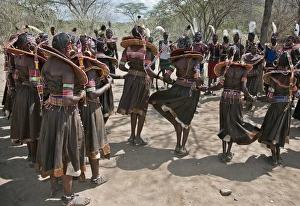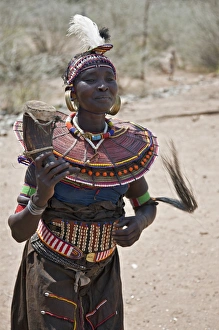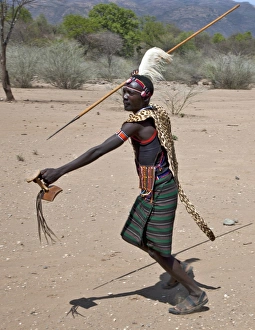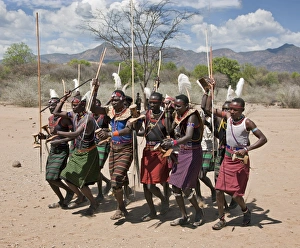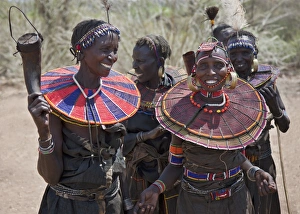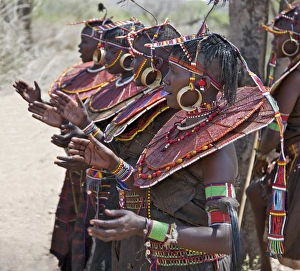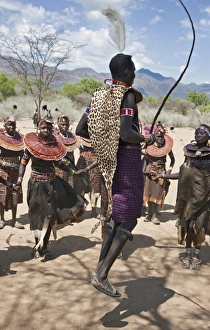Pokot Tribe Collection
The Pokot tribe, a group of pastoralists speaking a Southern Nilotic language, proudly display their rich cultural heritage through their traditional attire and customs
All Professionally Made to Order for Quick Shipping
The Pokot tribe, a group of pastoralists speaking a Southern Nilotic language, proudly display their rich cultural heritage through their traditional attire and customs. A Pokot man adorns himself with intricate beaded ornaments that symbolize his tribal identity. Meanwhile, a brave Pokot warrior leaps into the air with grace and agility, surrounded by young women as they celebrate the vibrant Atelo ceremony. In this captivating scene, a young Pokot girl showcases her uninitiated status through a broad necklace made of hollow reed grass. Nearby, two unmarried Pokot girls wear traditional ornaments that signify their singlehood. These adornments serve as visual markers within the community. Hailing from Kenya, the Pokot tribe practices unique rituals such as Koyogho – an intimate ceremony where a man pays his in-laws the remaining dowry for his wife years after marriage. During this ritual's conclusion, the couple leads together towards new chapters in their lives. A striking old woman catches our attention as she wears exquisite beaded ornaments denoting her married status. Her presence exudes wisdom and resilience acquired over generations of tribal traditions upheld by the resilient Pokot people. Even children are enveloped in cultural significance; we see a precious little one wrapped snugly in goatskin within its mother's loving embrace - an embodiment of familial ties cherished among these pastoralists. Another proud woman dons traditional beaded ornaments that speak volumes about her marital status while showcasing her individuality within her community. The artistry behind these accessories reflects both personal style choices and collective symbolism shared among fellow tribespeople. Lastly, we witness joyous moments during an Atelo ceremony where men, women, and girls come together to dance harmoniously. This celebration serves as a testament to unity and camaraderie deeply rooted in Southern Nilotic culture embraced by the spirited Pokot tribe.

